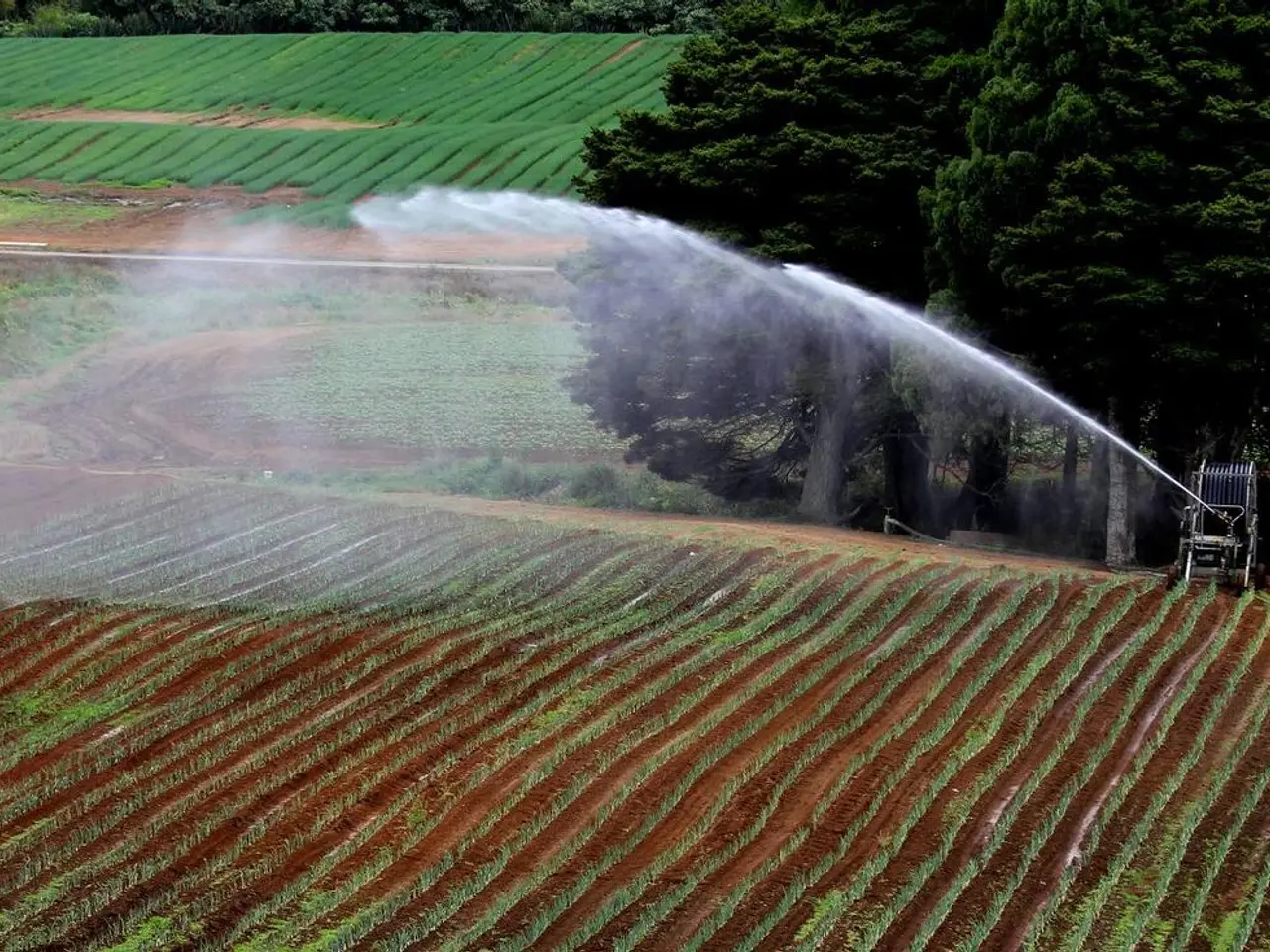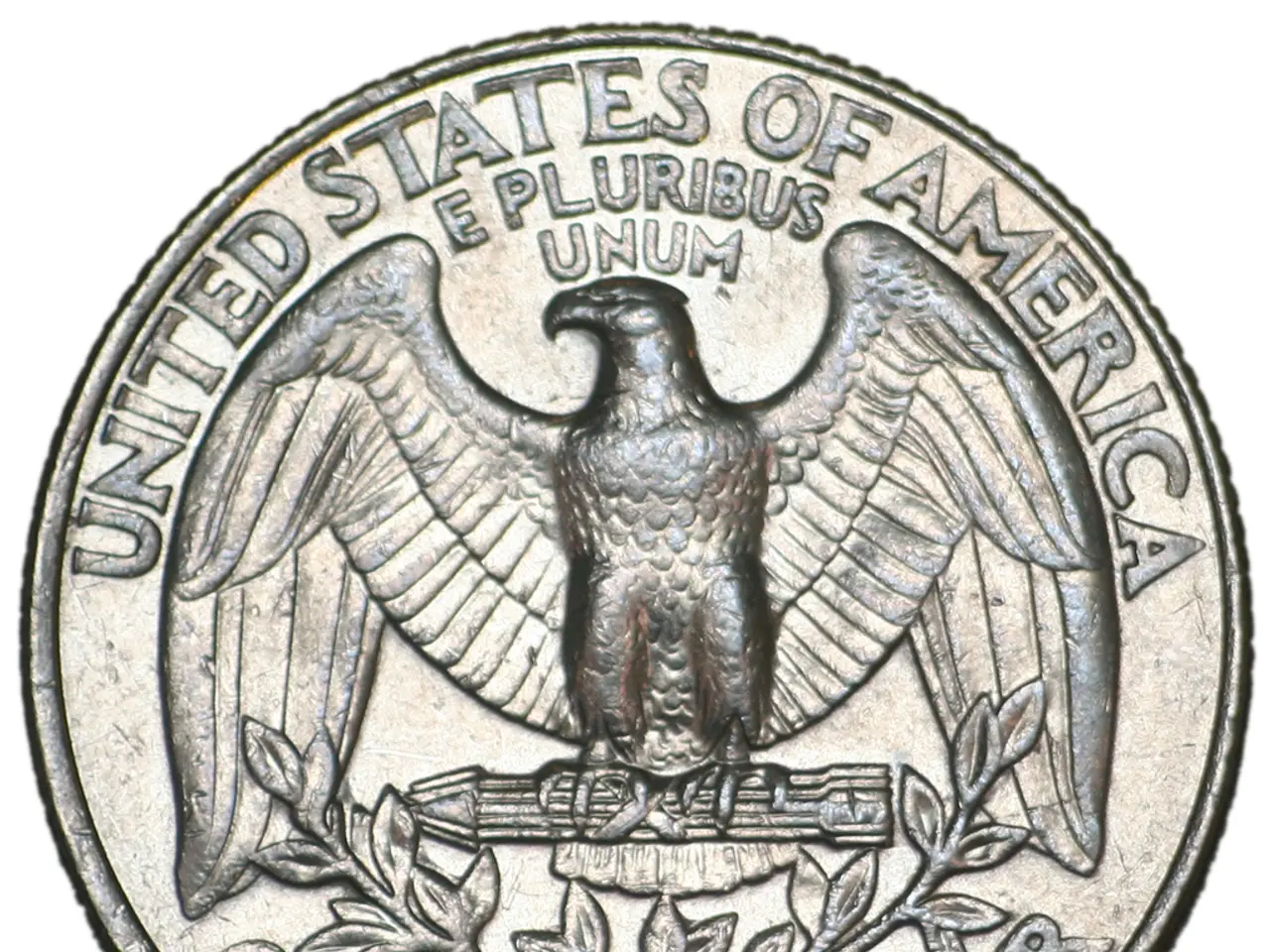AI and Technology's Impact on the Evolution of Sustainable Agriculture Practices
In the world of organic farming, the future is taking shape with the integration of Artificial Intelligence (AI) and technology. These advancements are transforming the landscape of sustainable agriculture, enabling precision farming through AI-powered sensors, drones, and Internet of Things (IoT) devices [1][3][4].
One of the key benefits is the early detection of pest infestations and plant diseases. AI-powered image recognition in drones scans vast farm areas, allowing farmers to intervene promptly with natural solutions like neem oil or companion planting, minimizing crop damage [1][2]. AI systems also analyse data on soil nutrient levels and weather patterns to recommend smarter crop rotation strategies, maintaining soil fertility and long-term sustainability [1].
AI-driven variable rate technology customizes input applications (water, organic fertilizer, pest deterrents) at micro-field levels, reducing waste and environmental impact while maintaining yield quality [4]. IoT-enabled sensors continuously collect real-time data on environmental and soil conditions, further improving decision-making and reducing labour costs [3].
Moreover, AI applications extend to labour optimization and market forecasting, helping organic farmers align production with demand to increase profitability without compromising organic standards [1]. These technologies also enhance consumer trust by enabling transparent monitoring and traceability of organic farming practices through data analytics and supply chain tracking.
Predictive analytics can help organic farmers proactively protect their crops from hazards such as extreme weather, infections, and pests [5]. AI-powered technologies are being used to analyse consumer preferences and market trends in the organic farming industry [6]. Blockchain technology is being employed for transparency, providing a safe and unchangeable ledger for tracking the path of organic produce from farm to table [7].
Robotics is being used in organic agriculture to perform labour-intensive tasks such as planting, weeding, and harvesting, with AI-equipped robots locating and eliminating weeds without harming crops [8]. AI-based systems can recommend companion planting techniques and crop rotations to organically increase soil fertility [9].
AI-driven climate control systems, energy-efficient greenhouses, and solar-powered equipment are helping organic farmers lower their carbon footprints [10]. Technologies such as blockchain promote confidence in organic certification by increasing transparency [11]. Data-driven insights ensure the cultivation of crops under ideal conditions, resulting in produce that is healthier and of greater quality [12].
In summary, the combination of AI and technology with organic farming offers benefits such as enhanced efficiency, improved resource management, improved crop quality, and increased consumer trust. These advancements are crucial in creating a better and more productive future as the farming industry evolves [13]. By preserving natural methods while maximizing output and minimizing environmental footprint, AI and technology are playing a significant role in revolutionizing organic farming.
References: [1] https://www.forbes.com/sites/forbestechcouncil/2021/02/11/how-ai-is-revolutionizing-organic-farming/?sh=26e9c1c63c12 [2] https://www.forbes.com/sites/forbesagencycouncil/2019/05/08/how-ai-is-revolutionizing-agriculture/?sh=368f68c86d1a [3] https://www.forbes.com/sites/forbestechcouncil/2021/02/11/how-ai-is-revolutionizing-organic-farming/?sh=5d0013c67c0f [4] https://www.forbes.com/sites/forbesagencycouncil/2019/05/08/how-ai-is-revolutionizing-agriculture/?sh=1561602e68c4 [5] https://www.forbes.com/sites/forbesagencycouncil/2019/05/08/how-ai-is-revolutionizing-agriculture/?sh=66a762055252 [6] https://www.forbes.com/sites/forbesagencycouncil/2019/05/08/how-ai-is-revolutionizing-agriculture/?sh=731358346681 [7] https://www.forbes.com/sites/forbesagencycouncil/2019/05/08/how-ai-is-revolutionizing-agriculture/?sh=560972d07846 [8] https://www.forbes.com/sites/forbesagencycouncil/2019/05/08/how-ai-is-revolutionizing-agriculture/?sh=381972c0766a [9] https://www.forbes.com/sites/forbesagencycouncil/2019/05/08/how-ai-is-revolutionizing-agriculture/?sh=6e3b2335768a [10] https://www.forbes.com/sites/forbesagencycouncil/2019/05/08/how-ai-is-revolutionizing-agriculture/?sh=73e35875770d [11] https://www.forbes.com/sites/forbesagencycouncil/2019/05/08/how-ai-is-revolutionizing-agriculture/?sh=2f8f69147965 [12] https://www.forbes.com/sites/forbesagencycouncil/2019/05/08/how-ai-is-revolutionizing-agriculture/?sh=7e7c32f87861 [13] https://www.forbes.com/sites/forbesagencycouncil/2019/05/08/how-ai-is-revolutionizing-agriculture/?sh=4c0b1a7d7e65
In the realm of farm management, the integration of AI and technology in organic farming is instrumental in implementing precision farming through AI-powered sensors, drones, and IoT devices. This technology allows for early detection of pest infestations and plant diseases, enabling the use of natural solutions to minimize crop damage.
AI systems also provide data analysis on soil nutrient levels and weather patterns, enabling smarter crop rotation strategies, maintaining soil fertility, and promoting long-term sustainability in organic farming.




